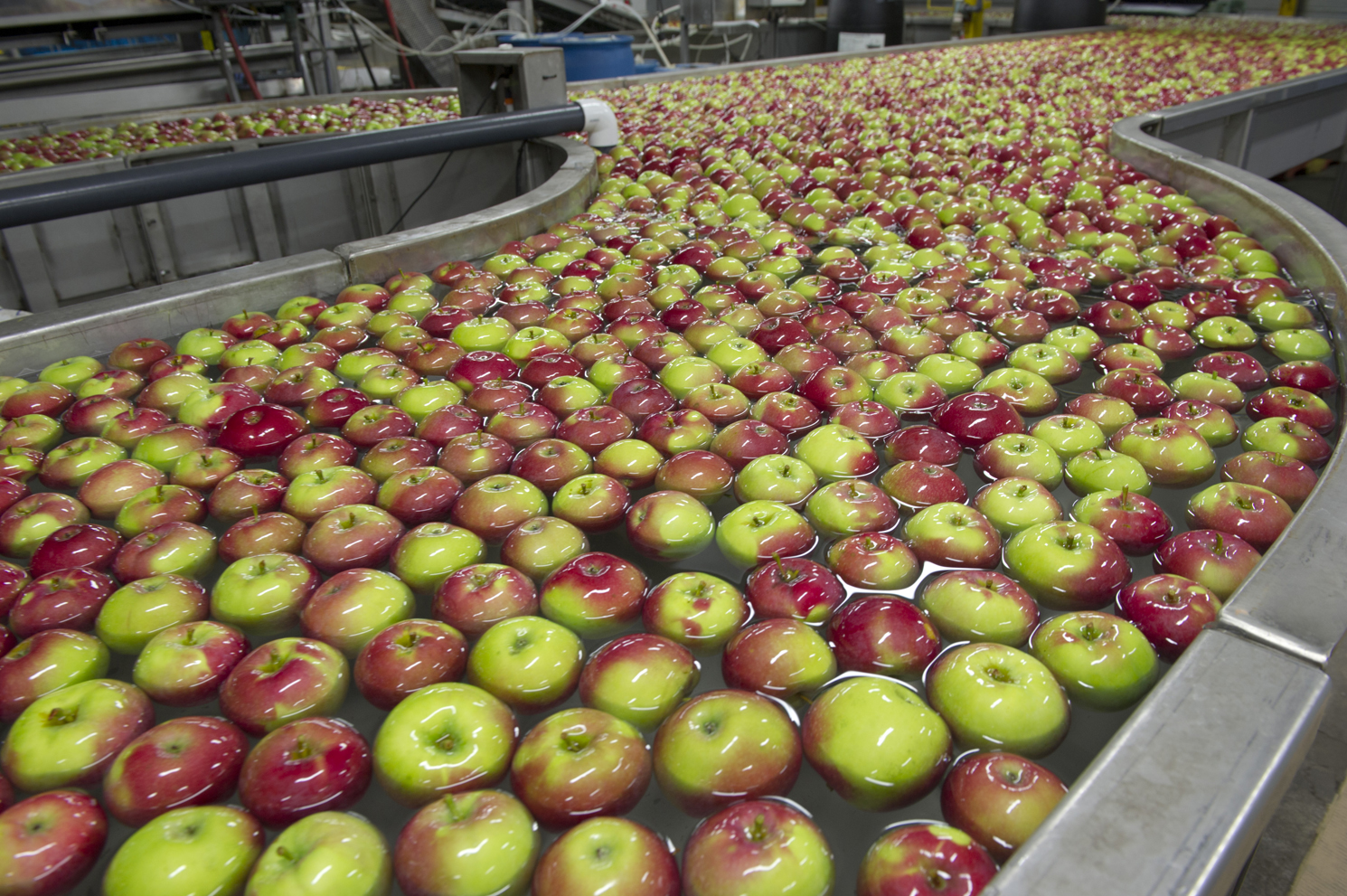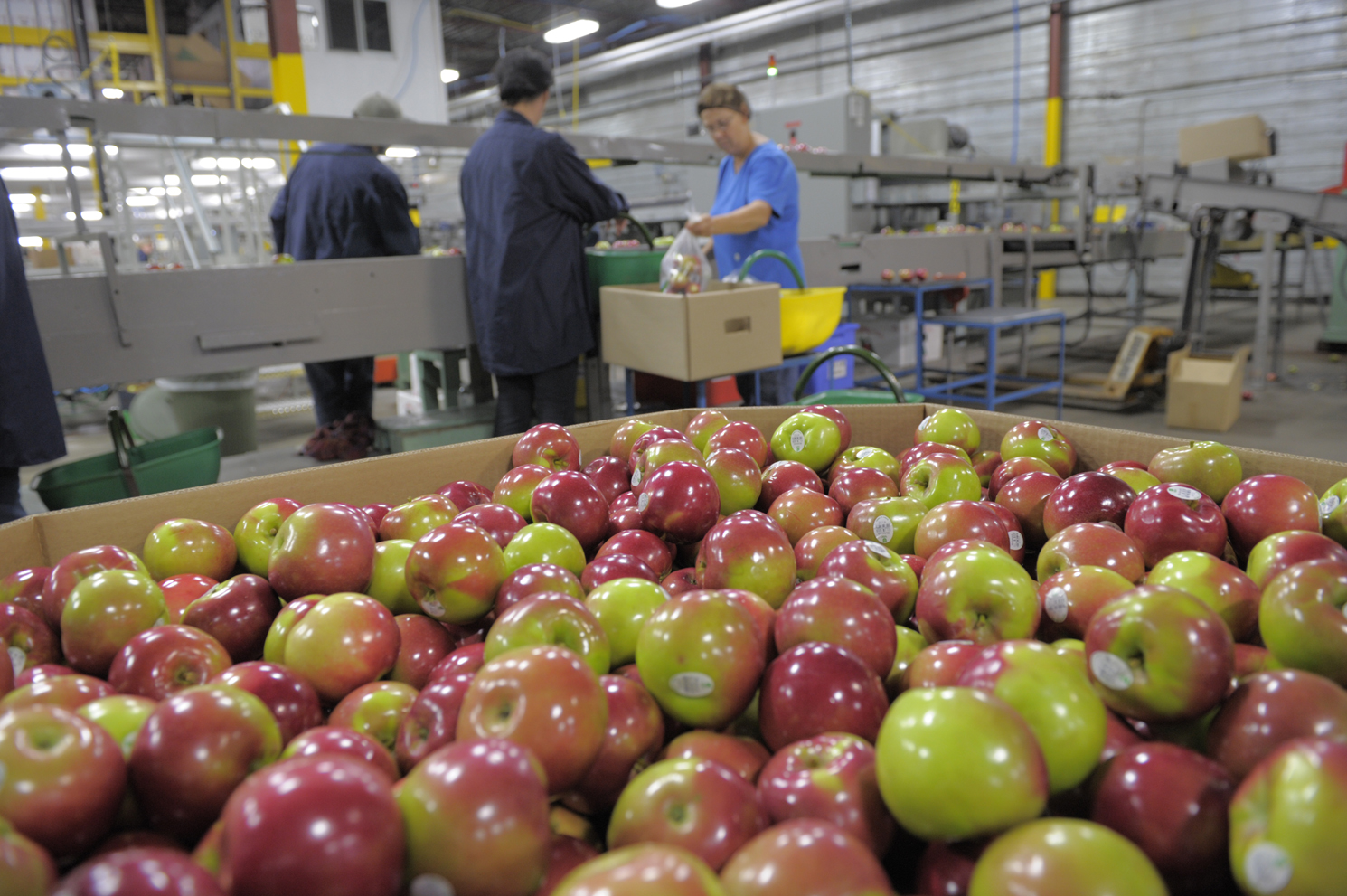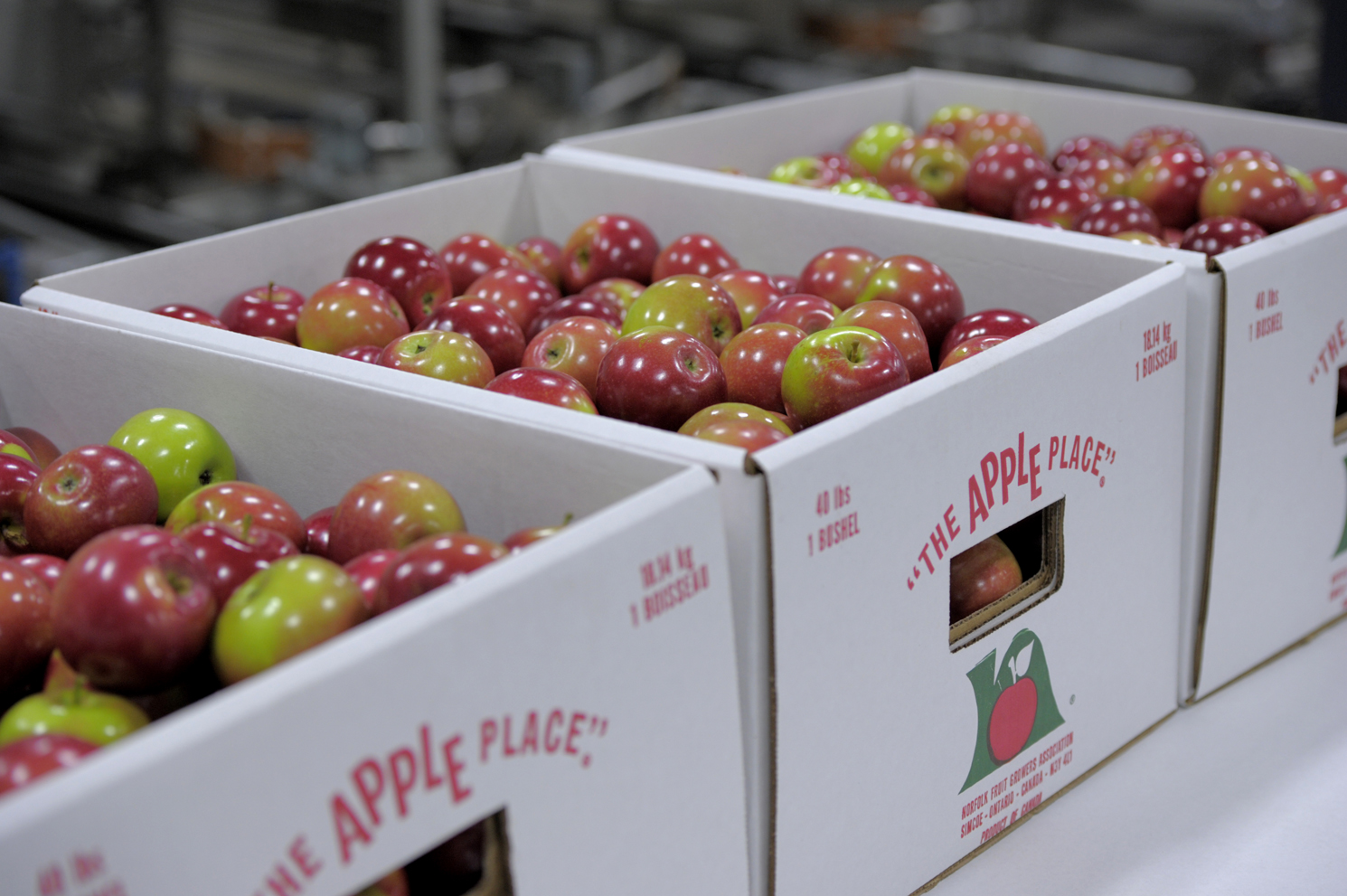
Apple co-op supporting farmers for over 100 years
October 08, 2015
For many of its members, belonging to the Norfolk Fruit Growers’ Association is a family tradition going back four or even five generations.
The farmers’ co-operative has been in existence for over 100 years, getting its start in 1906 as a marketing organization that sold its members’ apple crops. And that’s still ultimately what NFGA is today, even though they’ve expanded their services and their membership numbers have undergone some drastic changes.
 “On behalf of our members, we store, pack and sell their fruit, then we pay our expenses and return the rest of the money to the growers,” explains General Manager Tom O’Neill, adding that although the farmers own the association, they don’t have share capital as members of a more traditional co-operative would.
“On behalf of our members, we store, pack and sell their fruit, then we pay our expenses and return the rest of the money to the growers,” explains General Manager Tom O’Neill, adding that although the farmers own the association, they don’t have share capital as members of a more traditional co-operative would.
In its early days, the association had close to 500 members, and although that number has dwindled to just nine in 2015, fruit production has increased dramatically during that time thanks to new varieties, new production technologies, and changes in orchard management techniques.
Today, the association primarily handles apples and pears, but also markets some strawberries and raspberries on behalf of local growers and some of its members. The NFGA represents 1,200 acres of apples with the largest crop volume coming from Empires. New plantings of varieties like Gala, Ambrosia, and Honey Crisp, though, mean their product offering will be evolving in upcoming years as those trees begin to produce fruit.
The majority of NFGA’s fresh apples are sold in Ontario, but some are also exported to Central America and the Caribbean, and to association is exploring new market opportunities in India and the Middle East.
 In addition to packing and marketing, NFGA also co-ordinates the Integrated Pest Management program – IPM for short – for area growers, a service they’ve been offering since the late 1970s. IPM involves monitoring orchards closely to determine when, or if, pest levels reach a threshold where they need to some kind of action. NFGA employs a team of students during the summer months who visit orchards to scout for pests and diseases, and then email data of their findings to growers to assist with pest control decisions.
In addition to packing and marketing, NFGA also co-ordinates the Integrated Pest Management program – IPM for short – for area growers, a service they’ve been offering since the late 1970s. IPM involves monitoring orchards closely to determine when, or if, pest levels reach a threshold where they need to some kind of action. NFGA employs a team of students during the summer months who visit orchards to scout for pests and diseases, and then email data of their findings to growers to assist with pest control decisions.
An early connection with Canadian Feed the Children to provide apples for school programs has evolved into a partnership with Toronto-based FoodShare, an organization focused on improving access to affordable, healthy food. NFGA supplies FoodShare with small apples for their programs and for local schools, which O’Neill says is a win-win for all.
“These are smaller apples that don’ make the fancy fruit grade, but the return to the grower is better than selling them for juice,” he explains. “It’s a good fit for the market and there is long term benefit too – the more young people start eating apples, the more likely they are to do so later on in life too.”
 That optimism carries over into NFGA’s farmer members too. O’Neill says they’ve invested heavily in new storage and packing facilities, as well as planting new orchards and working to increase yields from each tree. They’ve also always been industry leaders, he adds.
That optimism carries over into NFGA’s farmer members too. O’Neill says they’ve invested heavily in new storage and packing facilities, as well as planting new orchards and working to increase yields from each tree. They’ve also always been industry leaders, he adds.
“We were among the first growers in province to move to using plastic bins. All of our bins are now plastic, which is better for food safety than wooden bins, and have been for 15 years,” he explains, adding that NFGA members were early adopters of the CanadaGAP and EuroGAP on-farm food safety programs too. “All of this shows the progressive nature of our growers.”
